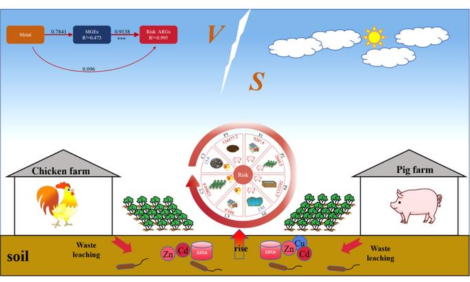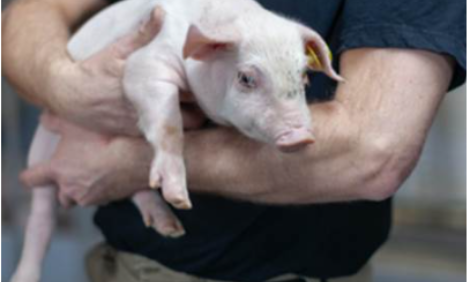



Pig outlook: Lean hog bulls work to stop the bleeding
China to release 3th batch of pork stocks, sales of refrigerated meat alternatives declined 10.5%The pig traders’ perspective: Lean hog futures prices dropped to the lowest levels of the year this week. However, the steep downdraft is way overdone, the market is well oversold, technically, and my bias is that a price bottom is close at hand. The pork cutout value firmed $1.76 Wednesday to $100.77. While movement slowed to 275.8 loads yesterday, there apparently was enough value buying under $100.00 on Tuesday’s drop below that level to encourage packers to raise bids. The question now is whether there’s enough retailer demand for packers to keep raising prices. Traders were awaiting Thursday afternoon’s USDA quarterly Hogs and Pigs Report, which is expected to reflect continued herd contraction. Analysts on average expect USDA to show a 0.8% year-over-year decline in the hog herd as of Sept. 1. The breeding stock is expected to post a 0.4% drop, while marketing hogs are expected to be down 0.9%. The June-Aug pig crop is expected to be down 0.5%.
USDA reports weekly U.S. pork sales
Pork: Net sales of 34,300 MT for 2022 were primarily for Mexico (23,700 MT, including decreases of 200 MT),
South Korea (2,900 MT, including decreases of 800 MT), China (2,000 MT, including decreases of 200 MT), Japan
(1,800 MT, including decreases of 200 MT), and Canada (1,400 MT, including decreases of 400 MT). Total net
sales of 100 MT for 2023 were for Mexico. Exports of 27,200 MT were primarily to Mexico (13,000 MT), China
(4,400 MT), Japan (2,800 MT), South Korea (2,000 MT), and Canada (1,600 MT)
China’s sow herd grows fractionally in August
China’s sow herd totaled 43.2 million head at the end of August, according to local media, citing ag ministry data. That was a 0.6% increase from July.
China to release fourth batch of pork stocks
China will sell an unspecified amount of pork from state reserves as it tries to increase supplies ahead of the week-long National Day holiday that begins Oct. 1. In total, Beijing plans to sell 200,000 MT of pork from state-reserves to ease prices, which were 30% higher than year-ago last week.
Sales of refrigerated meat alternatives declined 10.5% in the year leading up to Sept. 4
Reasons: market saturation, exorbitant prices, and the pushback against “woke” culture, according to Deloitte.
USDA issues rule against unfair practices in livestock marketing
At a meeting of a competition council, President Biden announced on Monday a proposed USDA rule to prevent unfair and deceptive practices in livestock marketing. It was the second of three rules planned by the USDA to give poultry, hog and cattle producers more leverage in dealing with meat processors. The proposal, which will be open for public comment for 60 days, identifies unlawful, deceptive practices in contracts between processors and producers, would prohibit retaliation against producers for lawful communications, and protects “market vulnerable individuals” from disadvantageous treatment due to their race, religion, gender or sex.
In other news, USDA’s Agricultural Marketing Service (AMS) will soon publish in the Federal Register a proposed rule to address what USDA said it actions by meat packers to use undue prejudice, discrimination and deception against livestock, meat and poultry producers. There will be a 60-day comment period once the proposal appears in the Federal Register.
Biden administration announces competitive meat, poultry market initiatives
President Biden will announce two new efforts by the U.S. Department of Agriculture (USDA) to support fair and competitive meat and poultry markets, as part of the Department’s role in the President’s Competition Council. These efforts include (1) publishing the proposed Inclusive Competition and Market Integrity Rules Under the Packers and Stockyards Act to protect farmers and ranchers from abuse, and (2) a new $15 million Agricultural Competition Challenge to ramp up collaboration with the State Attorneys General (AG) on enforcement of the competition laws, such as the laws against price-fixing.
“Highly concentrated local markets in livestock and poultry have increasingly left farmers, ranchers, growers and producers vulnerable to a range of practices that unjustly exclude them from economic opportunities and undermine a transparent, competitive, and open market—which harms producers’ ability to deliver the quality, affordable food working families depend upon,” said Agriculture Secretary Tom Vilsack, who is a member of the White House Competition Council. “USDA is focused on building new, fairer, and more resilient markets, protecting producers, and reducing food costs, and we are proving again today that we will use all tools at our disposal to do so.”
Proposed Rule on Inclusive Competition and Market Integrity
USDA is proposing these modernized regulations under the Packers and Stockyards (P&S) Act’s provisions prohibiting undue prejudice, unjust discrimination, and deception to provide for clearer, more effective standards to govern the modern marketplace. The Inclusive Competition and Market Integrity proposed rule would revise regulations under the P&S Act by prohibiting certain prejudices and disadvantages against covered producers in the livestock, meat, and poultry markets. The regulations would prohibit retaliatory practices that interfere with lawful communications, assertion of rights, and participation in associations, among other protected activities—such as retaliating against a farmer or rancher for blowing the whistle on price-fixing. The regulations would also identify unlawfully deceptive practices that violate the P&S Act with respect to contract formation, contract performance, contract termination and contract refusal.
The purpose of the rule is to promote inclusive competition and market integrity in the livestock, meat, and poultry markets.
• First, the proposed rule prohibits certain prejudices and disadvantages against covered producers. Specifically, the proposed rule seeks to protect “market vulnerable individuals” who are those at heightened risk of adverse, exclusionary treatment in the marketplace, which may include on the basis of their race, gender, sexual orientation, and religious affiliation.
• Second, the proposed rule prohibits retaliatory practices that interfere with lawful communications, assertion of rights, and associational participation, among other protected activities.
• Third, the proposed rule identifies unlawfully deceptive practices that violate the P&S Act with respect to contract formation, contract performance, contract termination and contract refusal.
• Finally, the rule proposes recordkeeping requirements to support evaluation of regulated entity compliance, including the ability to inspect relevant records, such as policies and procedures, staff training and producer information materials, data and testing, board of directors’ oversight materials, and other relevant materials.
The second of three priority regulatory Packers and Stockyards Act initiatives USDA announced it would pursue, this rule, will soon be published in the Federal Register and made available for public comment.









